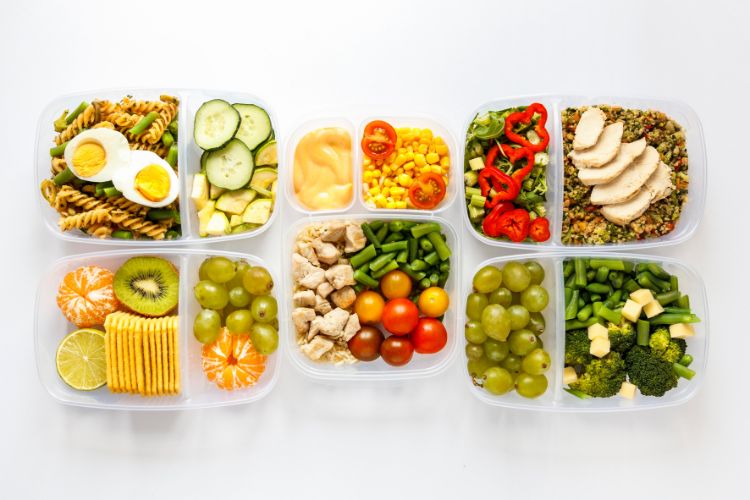Sign up for workout ideas, training advice, reviews of the latest gear and more.






If you’re trying to shed pounds, choosing the right weight loss diet can be overwhelming. With hundreds of trendy meal plans, calorie-cutting strategies, and social media claims, it’s tough to separate hype from science. Fortunately, research-backed eating patterns and sustainable lifestyle changes can help you lose weight—and keep it off.
In this comprehensive guide, we’ll break down the best weight loss diets, explain how to choose the right one for your body, and share expert-approved tips to help you succeed long-term.
When it comes to losing weight, calories in vs. calories out is the basic equation. But the quality of those calories matters too. Highly processed foods can lead to hunger, cravings, and fat storage, while whole foods can promote satiety, energy, and fat burning.
Effective weight loss diets focus on:
Here are the most effective and evidence-based diet plans for losing weight:
Best for: Heart health, long-term weight management
The Mediterranean diet emphasizes vegetables, fruits, whole grains, olive oil, fish, and nuts. It limits red meat, sugar, and processed foods.
Why it works: Rich in fiber and healthy fats, it curbs hunger and inflammation. Studies show it leads to steady, sustainable fat loss.
Tips:
Best for: Muscle maintenance during fat loss
Eating more protein boosts metabolism, reduces appetite, and preserves lean muscle.
Ideal foods:
Why it works: Protein takes longer to digest and helps you feel full longer. Aim for 1.2 to 1.6 grams of protein per kg of body weight per day for optimal fat loss.
Best for: Fast initial weight loss and controlling cravings
Low-carb diets (like keto) eliminate sugary and starchy foods. Instead, they focus on fat and protein. The ketogenic diet takes this further by reducing carbs to less than 50g per day.
Pros:
Cons:
Best keto foods:
Best for: Simplifying eating schedule and reducing calorie intake
Intermittent fasting isn’t a traditional diet but a timing strategy. Popular methods include 16:8 (16 hours fasting, 8-hour eating window) or 5:2 (eat normally for 5 days, low-calorie for 2).
Benefits:
Caution: Not ideal for pregnant women or those with a history of eating disorders.
Best for: Ethical eaters, reduced inflammation
This includes vegetarian and vegan diets, which exclude meat (and sometimes all animal products). Plant-based diets are naturally lower in calories and high in fiber.
Good choices:
Watch out for: Overconsumption of refined carbs like white bread or sugary vegan snacks.
With so many diets, how do you pick one that works? Consider the following:
The best weight loss diet is one you can stick to. Extreme restrictions often backfire. Ask yourself:
Different bodies thrive on different macronutrient ratios. Athletes may need more carbs, while those with insulin resistance may do better low-carb.
Consult with a registered dietitian or use a macronutrient calculator to find your optimal balance.
A good diet should fit your routine—not the other way around. For example:
Even the best diet won’t work if it’s not applied properly. Use these fat-loss tips to stay on track:
Apps like MyFitnessPal or Cronometer help you track calories and macros accurately. Many people underestimate what they eat.
Fiber keeps you full and stabilizes blood sugar. Aim for 25–35g per day from:
Thirst is often mistaken for hunger. Drink 2–3 liters per day, and start each meal with a glass of water.
Soda, alcohol, and sugary coffee drinks are silent diet killers. Choose:
Prepping meals in advance reduces impulsive eating. Stick to balanced plates:
Severe calorie deficits slow metabolism and lead to muscle loss. Aim for a modest 300–500 calorie deficit per day.
Skipping meals often leads to binge eating later. Instead, eat regular, balanced meals with protein, fiber, and healthy fats.
The scale doesn’t tell the whole story. Track body measurements, progress photos, or use a body composition scale.
Eating for weight loss doesn’t mean eating less—it means eating smarter. Prioritize:
While diet is crucial, combining it with exercise supercharges weight loss. Aim for:
Together, diet and exercise support fat loss, not just weight loss.
Here’s a quick glimpse of a sample weekly meal plan to inspire your journey:
…Repeat with variations for the rest of the week to maintain balance and excitement.
The truth is—the best diet is the one you can stick to. It should nourish your body, fit your lifestyle, and encourage a healthy relationship with food.
Focus on:
Weight loss is a marathon, not a sprint. Be patient, consistent, and celebrate every small win.
Stay up to date on the latest women’s health, fitness and lifestyle trends and tips.